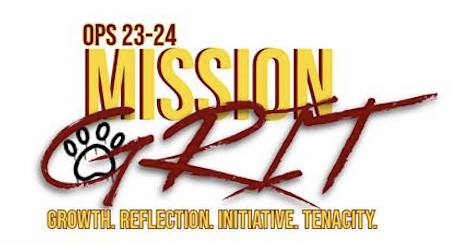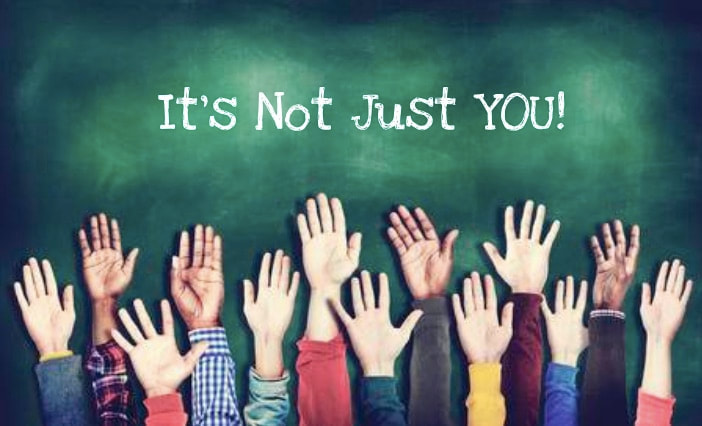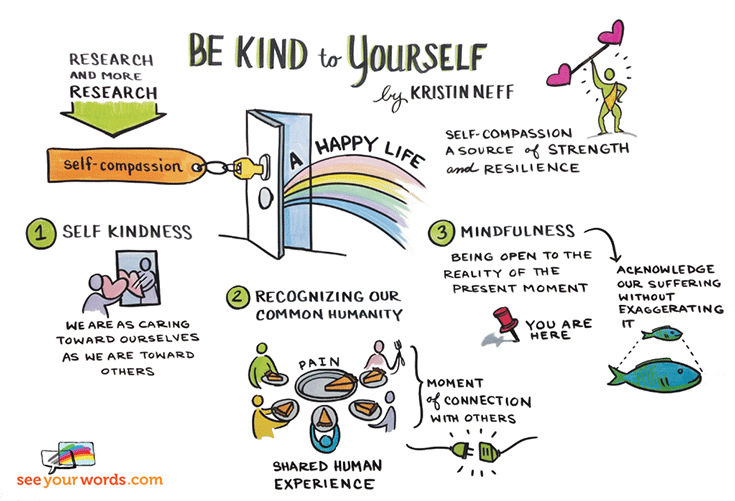|
Mission: G.R.I.T.! OPS is on a mission this year! Mission: GRIT! aims to increase the passion and perseverance of our students. Stay tuned for more information about what grit is, why we want it, and how to foster it. In the meantime, please feel free to look through my blog posts for information on a variety of topics. If you're looking for information about counseling resources in the OPS area, click here for emergency mental health hotlines, as well as a list of psychotherapy providers used by other OPS families. PLEASE NOTE: If you or a family member are experiencing the signs or symptoms of a mental illness and feel you are in crisis, call 201-262-HELP (4357) or dial 911.
|
"It's Not Just You!" Encore: Increasing Self-Compassion by Acknowledging Our Common Humanity1/2/2020 HAPPY NEW YEAR! It seems like everyone's asking, "what's your New Year's resolutions?" New Year's a time for reflection, starting new habits and making changes. According to a recent poll, four of the top 10 most popular resolutions this year have to do with taking care of oneself. It's good to have goals! But it's also important to remember that achieving goals means enduring setbacks. Progress is not a straight line. We're all human and nobody is perfect. With all the reports of childhood anxiety and depression on the rise, one resolution that could be good for all of us is to practice more self-compassion. (Disclaimer: "It's Not Just You" was first run as a program in February 2019. If the below sounds familiar, that's because you've read it before! If not, you may want to read the original blog post for a different application of the same concepts.) Self-Compassion is not much different than compassion for others. When we see someone who is suffering and want to help ease their condition, this is compassion. Self-compassion is noticing when you are suffering - whether it be due to a mistake, failure, or other sense of shortcoming - and treating yourself with the same kindness and understanding you would a good friend. (Please note, self-compassion is NOT the same as self-pity, self-indulgence, or even self-esteem. Please watch this video to learn more about the very important difference between self-esteem and self-compassion.) Self-Compassion* consists of three elements:
As the school counselor, I see first-hand how students react when they've made a mistake they think is big or embarrassing. They cry, hide in the bathroom or nurse's office, and can't think about anything else until their feelings subside. This is "over-identification" and it tends to leave us feeling like the only one to ever experience the doubt, insecurity, or even shame that can occur when we fail. In these instances, I often ask students what they would say to a friend who has done the same thing, and guide them in thinking things through from this new perspective. By doing so, students quickly learn that:
The irony, of course, is that failure itself is a universal human experience. We all fail at some point. If we're really trying, we fail a lot. We make mistakes. We get answers wrong. We accidentally hurt those we care about. All of us. Every single one of the more than 7 billion people on this planet fails at something, somehow, sometime. And when it happens, many of us - worldwide - judge ourselves harshly, feel alone in our failure, and overly-identifying with the negativity. "It's Not Just You" is intended to help students build a buffer against harsh self-judgment and isolation by increasing their sense of connectedness to humanity as a whole.
For this program (just like last year), students are being asked to recognize and share experiences that are common to all people. They can find examples in music lyrics, tv commercials, comedy routines and/or everyday life. It can even be something that's happened to them that they know must happen to others. It can be negative (stubbing one's toe, being late for school, missing the winning shot in a sport, etc.) or positive (Fridays, looking forward to a vacation, celebrating a birthday, etc.). Selected experiences are read during the daily announcements, and students are asked to raise their hands if they've felt the same way or done the same thing. When everyone looks around at the other hands raised, they know "it's not just you!" Knowing that others have made the same mistakes or felt the same way helps reduce the isolation and shame we feel at those times. By increasing self-compassion we are encouraging students to be better friends to themselves; to treat themselves with kindness, respect, forgiveness, and trust. And it really works! Next time you're being your own worst critic, I invite you to try it. Talk to someone else about what happened and see if it helps you to hear them say, "it's not just you!" *For more on self-compassion, please visit self-compassion.org
0 Comments
Leave a Reply. |
AuthorAll blog posts written by Rima Mason, MA, LPC unless otherwise noted. Blog list by title2023-2024 year: 2020-2021 year: 2019-20 year: 2018-19 year:
Archives
December 2023
Categories |



